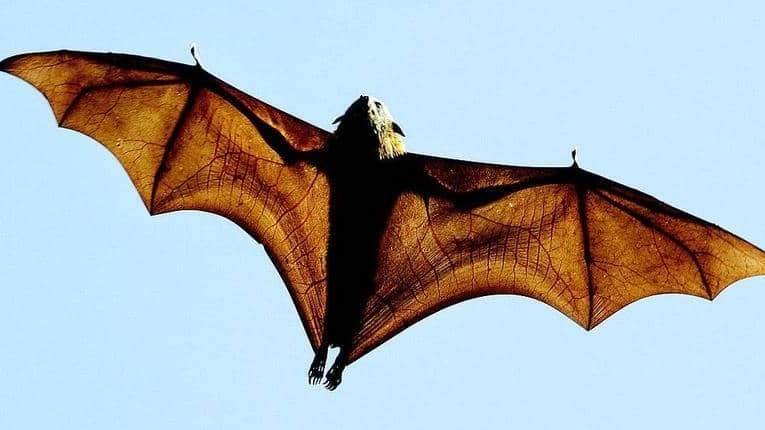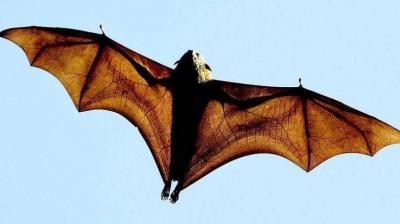Scientists have long suspected that bats are a natural reservoir for coronaviruses, and their genetic information may help us prevent and manage future pandemics. A study conducted by Tulane University states that the link between bats and coronaviruses, such as those behind "COVID-19," SARS, and other highly contagious respiratory diseases, is likely due to a long shared history.
Lead researcher Hannah Frank, a bat expert at Tulane's School of Science and Engineering, conducted the study in collaboration with David Enard from the University of Arizona and Scott Boyd from Stanford University. Frank, an assistant professor in the Department of Ecology and Evolutionary Biology at Tulane, noted, "We found that bats are under unusual stress from coronaviruses compared to other mammals, supporting the idea that bats are rich sources of coronaviruses and may yield insights for future prevention or treatment."
The study was published in the Proceedings of the Royal Society B, the Royal Society's primary biological research journal, and was funded by two grants from the National Science Foundation aimed at better understanding bat immunity and evolution in response to pathogens, especially following "COVID-19."
Frank stated, "Animal-borne pandemics highlight the need to understand how natural hosts evolve in response to emerging human pathogens, and which groups may be susceptible to infection and/or potential reservoirs to mitigate public health and conservation concerns."
In the largest bat and mammal dataset to date, the team examined an enzyme called angiotensin-converting enzyme 2 (ACE2), a host protein that serves as a receptor for the viruses causing "COVID-19" and SARS. They also studied dipeptidyl peptidase 4 (DPP4 or CD26), which acts as a receptor for the coronavirus responsible for Middle East Respiratory Syndrome (MERS).
Both ACE2 and DPP4 genes are under strong selection pressure in bats, more so than in other mammals, amidst exposure to viruses. Frank explained, "Additionally, mammalian groups differ in their similarity to humans in residues that interact with SARS-CoV, SARS-CoV-2, and MERS-CoV, and increased similarity to humans in interacting residues generally heralds susceptibility to SARS-CoV-2."
This research enhances our understanding of the relationship between coronaviruses and mammals, particularly bats, providing diverse data for studies on how host proteins interact with coronaviruses. Frank concluded, "This study gives us insights into how mammals, particularly bats, evolve with coronaviruses. It also highlights broad patterns in susceptibility, which might be useful in managing future pandemics."
Frank warns that the study should not cause fear of bats, as they play an important role in our ecosystem, significantly contributing to pest control, plant pollination, and seed dispersal.




